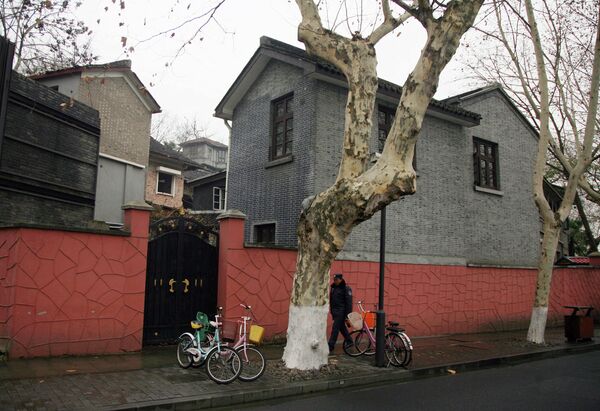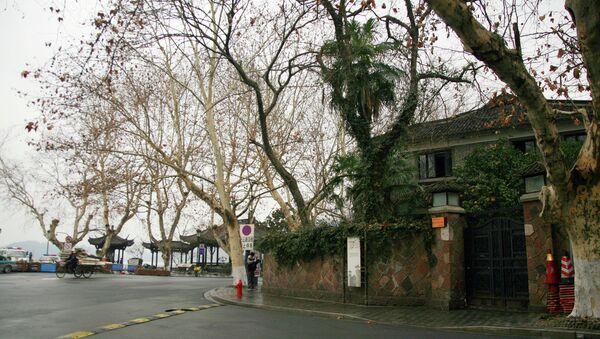MOSCOW, January 31 (Sputnik) – The authorities of Chinese city of Hangzhou in Zhejiang province have left it to the public to decide whether one of its historic attractions should house a McDonald's coffee shop.
The decision comes after authorities had granted tentative permission to convert the former home of late Taiwanese leader Chiang Ching-kuo into a McDonald’s, which caused an outcry in the media.

The McDonald’s plan initially described the outlet as a coffee shop, suggesting a McCafe. It was supposed to have 100 seats in a building with an area of 335 sq. meters (3,600 sq. feet) and serve French fries, among other items.
However, it was supposed to be inside a lakeside mansion by one of China’s most frequently painted landscapes, Hangzhou’s West Lake.
West Lake is celebrated in Chinese tradition, notably by the poet Su Shi, who lived during the Song Dynasty from 960 to 1279, and who compared the body of water to a beautiful woman.
Former home of late Taiwan leader Chiang Ching-kuo may turn into a #McDonald's $MCD | http://t.co/W3YvpCaGK2 pic.twitter.com/tbNEv2Bkse
— HLy (@HedgeLy) 28 января 2015
“In the future, will Uncle McDonald (Ronald McDonald) with a head of red hair, a big smile on his face, be sitting on a bench just meters away from the Broken Bridge?” the Qianjiang Evening News newspaper asked in its pages.
Hangzhou residents in two minds over application for McDonald’s outlet at historic Chiang Ching-kuo home http://t.co/QRWt33jKi4 | @SCMP_News
— Thomas·王 (@iChinadian) 28 января 2015
Opinions are divided. Some supported the proposal for McDonald’s to rent the house, which Chiang reportedly used in the late 1940s, as a way for the property to obtain a restoration.
Should historic sites like Taiwan leader Chiang Ching-kuo’s former home be used for a McCafe?http://t.co/cCxxjbYo7U
— Cuppaz (@CuppazLimited) 30 января 2015
While the local government remains undecided, McDonald’s has not commented on the issue.
It isn't unprecedented that a foreign chain restaurant would be located in a historic building.
A branch of the US coffee chain Starbucks was forced out of Beijing’s Imperial Forbidden City in 2007 after a campaign was waged by Rui Chenggang, a journalist for state broadcaster China Central Television (CCTV).

